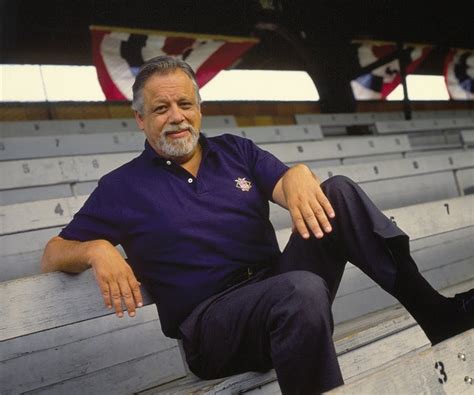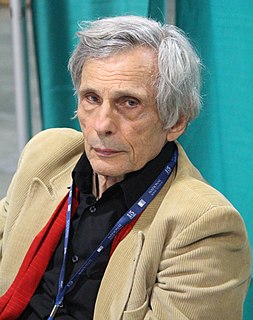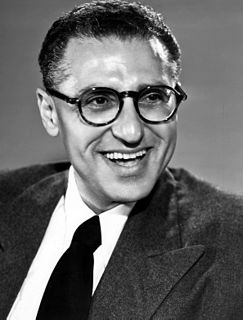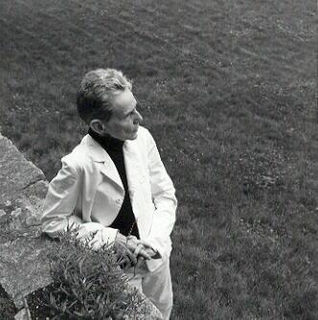A Quote by Maurice Sendak
You know who my gods are, who I believe in fervently? Herman Melville, Emily Dickinson - she's probably the top - Mozart, Shakespeare, Keats. These are wonderful gods who have gotten me through the narrow straits of life.
Related Quotes
I am not a religious person, nor do I have any regrets. The war took care of that for me. You know, I was brought up strictly kosher, but I - it made no sense to me. It made no sense to me what was happening. So nothing of it means anything to me. Nothing. Except these few little trivial things that are related to being Jewish. ... You know who my gods are, who I believe in fervently? Herman Melville, Emily Dickinson - she's probably the top - Mozart, Shakespeare, Keats. These are wonderful gods who have gotten me through the narrow straits of life.
Art has always been my salvation. And my gods are Herman Melville, Emily Dickinson, Mozart. I believe in them with all my heart. And when Mozart is playing in my room, I am in conjunction with something I can’t explain — I don’t need to. I know that if there’s a purpose for life, it was for me to hear Mozart. Or if I walk in the woods and I see an animal, the purpose of my life was to see that animal. I can recollect it, I can notice it. I’m here to take note of. And that is beyond my ego, beyond anything that belongs to me, an observer, an observer.
The gods have fled, I know. My sense is the gods have always been essentially absent. I do not believe human beings have played games or sports from the beginning merely to summon or to please or to appease the gods. If anthropologists and historians believe that, it is because they believe whatever they have been able to recover about what humankind told the gods humankind was doing. I believe we have played games, and watched games, to imitate the gods, to become godlike in our worship of eachother and, through those moments of transmutation, to know for an instant what the gods know.
What I treasure most at any moment is intimacy, surprise, a sense of mystery, wit, depth and love. A handful of cherished friends offer me this, and the occasional singer or film-maker or artist. But my most reliable sources of electricity are Henry David Thoreau, Shakespeare, Melville and Emily Dickinson.
Alas, those six unfortunate souls who have made their way through my books know that every one of them is about Emerson and Thoreau and their dark counters, Melville and Emily Dickinson. Try as I might, I can't get their inspirations, their challenges and sentences and wisdom and questions out of my head.
I know people who say Hollywood broke her heart, and all that, but I dont believe it. She was very observant and tough minded and appealing, but she adored and trusted the wrong people. She was very courageous-you know the book Twelve Against the Gods? Marilyn was like that, she had to challenge the gods at every turn.
Herman Melville is not comforting. Emily Dickinson isn’t either. Maybe their work is too hungry for comfort, or just too vivid for comfort. But Henry James is – profoundly so. Because he is tender. The tenderness is there in the structure of the sentence. He knows the way the poor and the dead are forgotten by the living, and he cannot allow that to happen. So he keeps on writing for them, for the dead, as if they were children to be sheltered and loved, never abandoned.
All gods who receive homage are cruel. All gods dispense suffering without reason. Otherwise they would not be worshipped. Through indiscriminate suffering men know fear and fear is the most divine emotion. It is the stones for altars and the beginning of wisdom. Half gods are worshipped in wine and flowers. Real gods require blood.
I believe strongly in what John Keats called negative capability: the trait or practice that allows a poet to remain in uncertainties, mysteries, doubts, without any irritable reaching after fact & reason. For Keats, William Shakespeare exemplified negative capability, and I do think it's extraordinary that for all the thousands of pages Shakespeare left behind, we really don't know much about Shakespeare's own personality or opinions.
He was overconfident”, she told him. “And I won so the gods must have thought I was right. Otherwise they’d have made me lose. You know how trial by combat works.” “You won because you were good” he corrected her. “I find it hard to believe the gods sit forever about the Divine Realms betting on jousts and trials by combat.




































